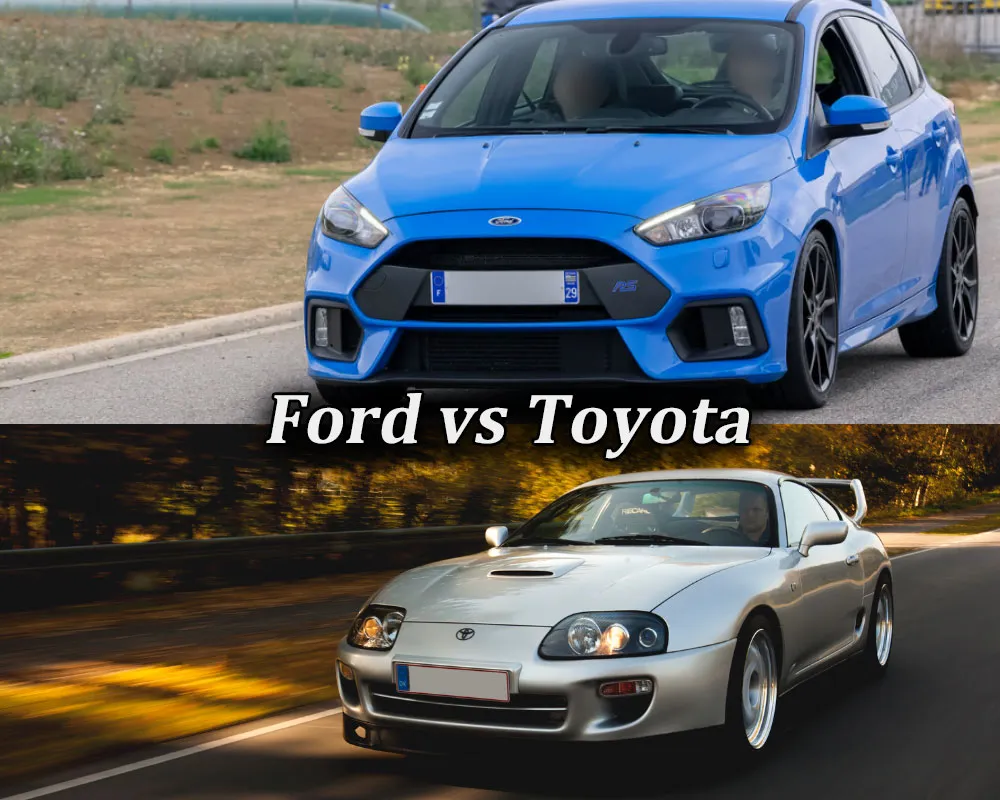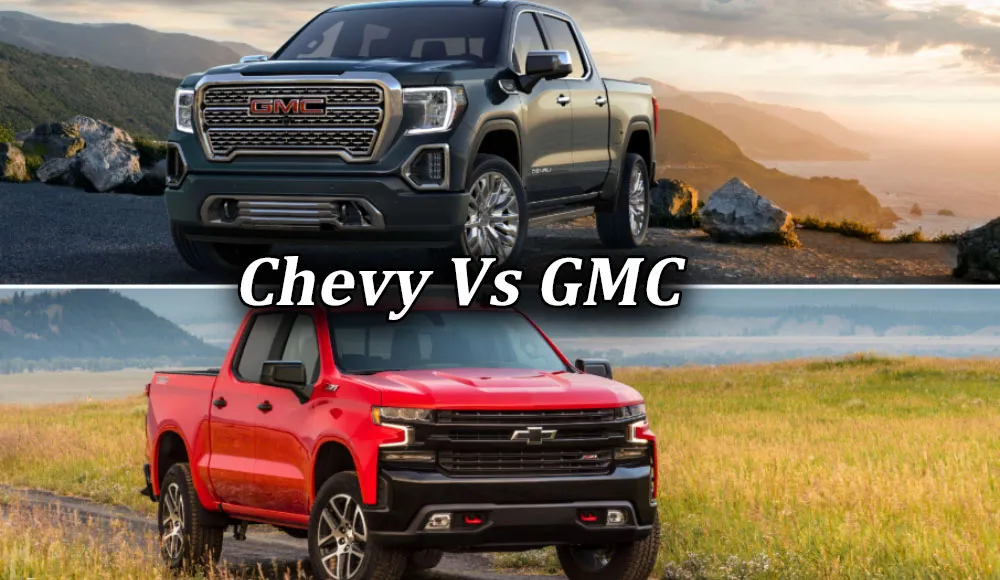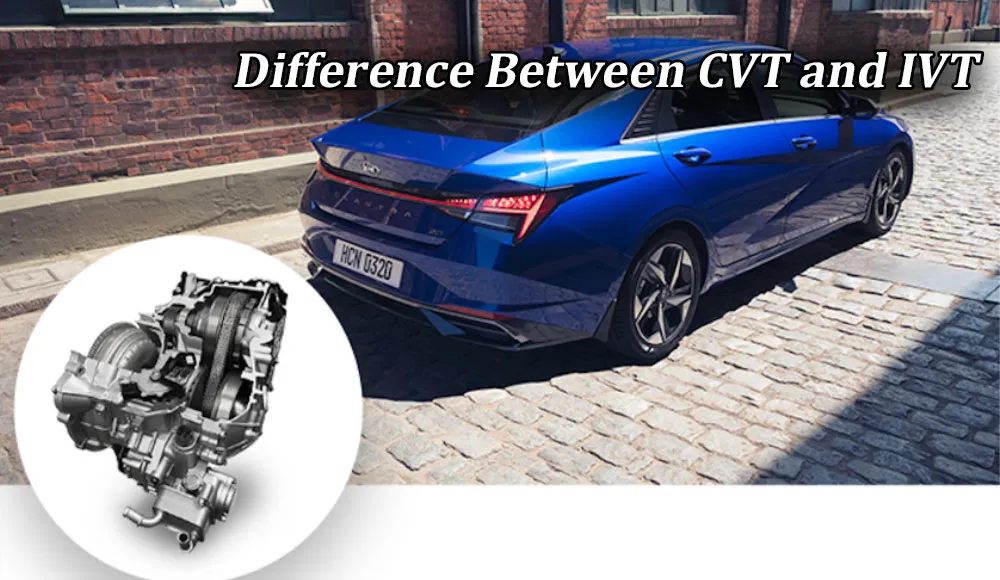As an avid car enthusiast and blogger, I’ve always been intrigued by the ongoing rivalry between Ford and Toyota. These two automotive giants have shaped the industry in numerous ways. Through this post, I aim to provide a comprehensive comparison, shedding light on their historical backgrounds, innovations, market presence, model ranges, customer loyalty, and environmental initiatives. Let’s dive in!

Historical Overview
Ford’s History
Ford, founded by Henry Ford in 1903, revolutionized the automotive industry with the introduction of the Model T and the assembly line concept. This not only made cars affordable but also set a precedent for manufacturing. Over the years, Ford expanded its operations globally, constantly innovating and adapting to changing market demands.
Toyota’s History
Toyota, established in 1937 in Japan by Kiichiro Toyoda, initially focused on creating looms before transitioning to automobiles. The company gained international fame for its quality, durability, and reliability. Toyota’s approach to production, encapsulated in the Toyota Production System, became a model for efficient manufacturing worldwide.
Historical Market Position Comparison
While Ford dominated the early 20th century, Toyota’s rise in the latter half marked a shift in global automotive dominance. Toyota’s focus on quality and innovation allowed it to gain a significant foothold in markets where Ford had been a leader.
Innovation and Technology
Ford’s Innovations
Ford has been a front-runner in automotive innovation. Its EcoBoost engines, SYNC infotainment system, and advancements in lightweight materials are testaments to its commitment to progress. Ford has also ventured into autonomous vehicle technology, reflecting its forward-thinking ethos.
Toyota’s Innovations
Toyota is synonymous with hybrid technology, with the Prius leading the charge. The company’s commitment to alternative fuel technologies, including hydrogen fuel cells, showcases its vision for a sustainable automotive future. Toyota’s innovations extend to safety features and robotic-assisted driving technologies.
Comparative Analysis of Technological Approaches
While Ford focuses on performance and connectivity, Toyota leans towards environmental sustainability and safety. This difference underlines their unique approaches to addressing consumer needs and future industry trends.
Global Market Presence and Sales
Ford’s Global Market Presence
Ford’s global presence is significant, with strongholds in North America, Europe, and Asia. Its F-Series trucks have been best-sellers in the United States for decades, underlining its dominance in the American market.
Toyota’s Global Market Presence
Toyota’s global footprint is remarkable, with a solid presence in over 170 countries. It’s particularly dominant in Asia and has made substantial inroads in North America and Europe.
Sales Figures and Market Share Comparison
Toyota often leads in global sales, attributed to its wide range of models and focus on reliability. Ford, while leading in specific segments like trucks in North America, trails behind Toyota in global sales figures.
Model Range and Vehicle Types
Ford’s Model Range
Ford boasts a diverse range of vehicles, including trucks, SUVs, sedans, and electric vehicles (EVs). The F-Series trucks and Mustang are iconic models that reflect Ford’s emphasis on performance and ruggedness.
Toyota’s Model Range
Toyota offers a comprehensive range of vehicles, including hybrids, SUVs, sedans, and trucks. Its strength lies in its hybrid lineup, headlined by the Prius, and the reliability of models like the Corolla and Camry.
Comparison of Strengths in Vehicle Segments
Ford excels in the truck and performance segments, while Toyota shines in the hybrid and reliability arenas. Both brands offer diverse choices, but their strengths cater to different market segments.
Customer Loyalty and Brand Perception
Ford’s Customer Loyalty
Ford’s brand loyalty stems from its image as a rugged, reliable American brand. Its trucks, in particular, have a loyal following due to their durability and performance.
Toyota’s Customer Loyalty
Toyota’s reliability, fuel efficiency, and resale value contribute to its strong customer loyalty. The brand is often associated with quality and longevity, attributes that have built a faithful customer base.
Comparative Analysis of Brand Perception
Ford is perceived as a symbol of American strength and innovation, while Toyota is viewed as a beacon of reliability and environmental consciousness. This difference in brand perception significantly influences customer loyalty.
Environmental Initiatives and Sustainability
Ford’s Environmental Strategies
Ford has committed to reducing its carbon footprint through initiatives like electrifying its vehicle lineup and improving manufacturing processes. Its move towards EVs, like the Mustang Mach-E, signifies its dedication to sustainability.
Toyota’s Environmental Strategies
Toyota leads in environmental sustainability, with its early adoption of hybrids and ongoing research into hydrogen fuel cells. The company aims for a future of zero emissions, reflecting its commitment to environmental responsibility.
Comparison of Green Technologies and Sustainability Efforts
Toyota takes the lead in environmental initiatives with its long-standing commitment to hybrid technology. Ford, though a bit late to the game, is rapidly advancing in EV technology, showing promise for a greener future.
Conclusion
The comparison between Ford and Toyota reveals two companies with distinct strengths, histories, and visions. Ford, with its focus on performance and innovation, and Toyota, with its commitment to reliability and sustainability, both have made significant contributions to the automotive world. As they continue to evolve, it’s exciting to imagine what the future holds for these industry giants.
Remember, whether you’re a fan of Ford’s robust trucks or Toyota’s eco-friendly vehicles, the choice often comes down to personal preference and what you value most in a vehicle. Happy motoring!


